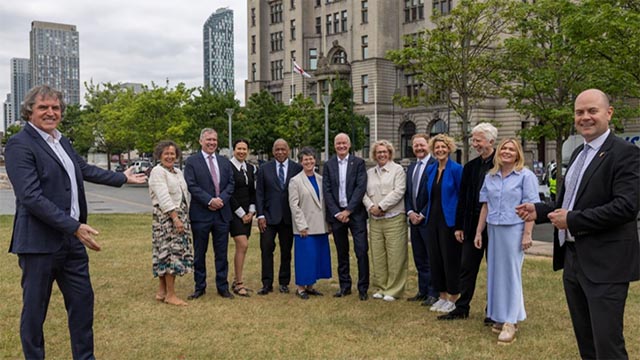Planning is in crisis. So say planners. Developers concur. Yet while there is an appetite for wholesale reform, most crave stability. The problem can feel insurmountable; the solution might ?be not to legislate but to nudge.
We are past masters at building up a big problem into something so colossal that we can’t see a resolution – the ongoing airport debate in the South East is perhaps the best example. But planning is similar. Perhaps nudge theory can help.
The theory has been around for a while – on both sides of the Atlantic. The Obama administration is a fan, as is the coalition here. The government’s Behavioural Insights Team, the “Nudge Unit”, seeks to influence behaviour to deliver outcomes; looking at the barriers to, say, charitable giving and addressing those, rather than simply promoting (or requiring) giving per se. It is a discipline that may suit planning too. Given the changes to the system in the past three years – from the troubled birth of the National Planning Policy Framework and the gestation of the localism agenda to the creation of the community infrastructure levy – no one has the appetite for further wholesale change.
So what can be done to nudge behaviour to create a better planning environment? What steps can be taken to, as Almacantar’s Mike Hussey put it at an Estates Gazette roundtable earlier this month, make the system “better, quicker, more efficient, less of a waste of time”?
1. Councils to accept private sector secondees and funding. Hussey tells the story of his time at LandSec when he offered to match funding on hiring new planners in London. He was expecting to have to find £2m, the public sector could only put up £23,000. So stasis. Nevertheless today there is a willingness to contribute more if a more efficient system is the upshot. In a similar vein, can developers second staff to local authority planning departments (after all, Westminster council is seconding an officer to CLG and vice versa)? Both are politically contentious. Both would create better resourced planning departments. So in the spirit of the nudge, what can be done to ensure secondees contribute to a local authority’s efficiency while being kept away from any process that stands to benefit their employer? Tough, yes. Impossible to strike the right balance? ?It shouldn’t be.
2. Combined local authority solutions. Full integration of planning departments across council boundaries is neither likely nor desirable: the process is too political for such local disconnect. But merging back offices is happening and should happen more. Equally, and nudgingly, where agencies that straddle authority boundaries exist, they can and should get involved. The Greater London Authority is the best and best-resourced example. And it is getting involved, offering resources and counsel to individual boroughs. It should happen more. Outside of the capital, how can city mayors play a more effective, neutral and constructive role?
3. Financial devolution. A Boris bugbear. The London mayor wants to retain a greater share of tax receipts to address the capital’s priorities. Central governments hate devolution or tax hypothecation, but targeted properly – with a corresponding cut in grant – it is doable. Or start smaller and allow local fee setting for planning. Cap it perhaps, but most developers already have a blacklist of local authorities they will not work with. Devolved fee setting would reinforce such pragmatic market-led thinking and allow progressive councils to recover more of their costs.
4. Divorce strategy from execution. Should politicians be involved in planning decisions? Or should they set the local authority planning frameworks and allow officers to test applications against the framework? A big change, yes. But perhaps pick a pilot – Westminster would be delighted to do so, I’m sure.
5. Totally abandon the planning system and leave it to the market. Scratch that, it’s less nudge and more Armageddon. ?Let’s try nudge first.
Damian.Wild@estatesgazette.com











